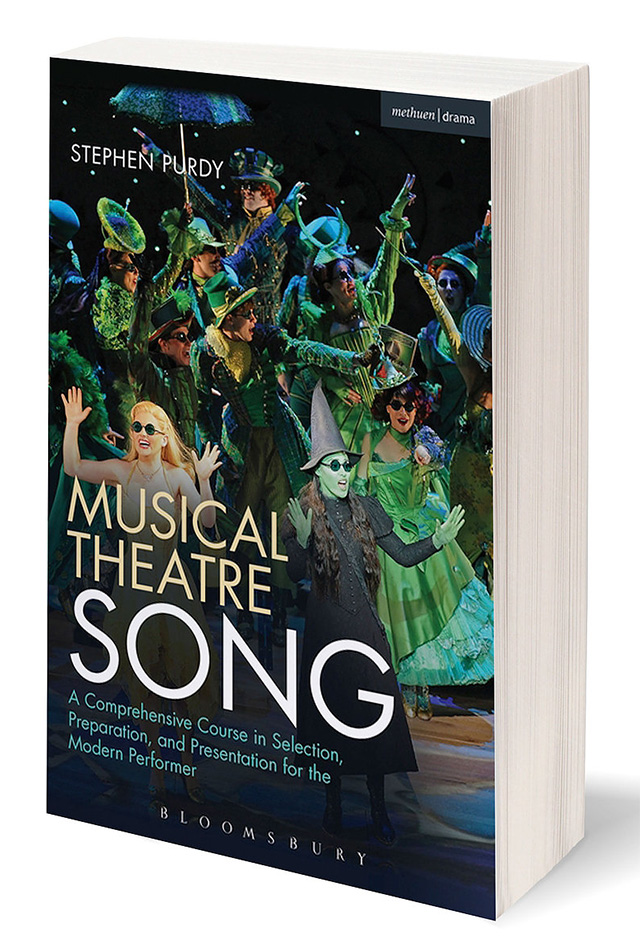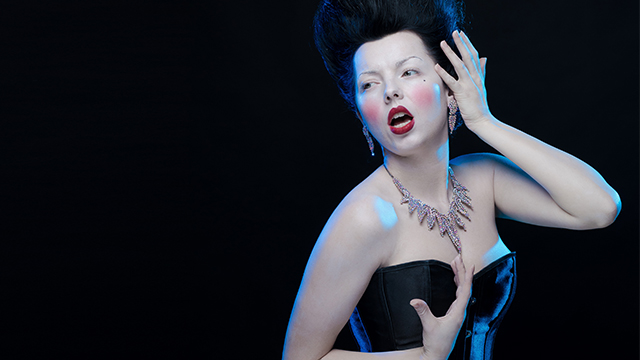Author Interview: Stephen Purdy (The Do’s and Don’ts of Audition Material)
Written by Meghan McKiernan
July 23, 2017
Even before the audition starts, one of the things that gives actors the most anxiety is preparing the material. Knowing what role to sing for, what kind of style, and how to tell the story in such a short amount of time is no doubt the hardest thing to learn for each audition. Stephen Purdy, author of Musical Theatre Song and vocal coach in New York City, is an expert on auditioning, as he has witnessed and prepared many auditions himself.

His book explains everything you need to know as an actor from musical theatre history, to exploring theatre styles, and checklists on how to build your own audition book. Here’s the inside scoop on Stephen Purdy’s inspiration for writing his book and tips for every performer to have a great audition.

What kind of experiences or observations persuaded you to write this book?
Well, probably because of the dearth of books that bring all this subject matter together. There are books on auditioning, some very dated, and there are books on song interpretation. There are books on creating a role in a musical. But I wanted to create a comprehensive “go-to” resource where the principles of appropriate song selection, methods of approaching the “acting” of the song and ideas for effective presentation all come together as a whole unit. So, in effect it’s a timeline book: These are detailed, prescribed steps to take in order to highlight your best attributes, become a great storyteller and deliver great presentations.
The first half of your book goes through the history of musical theatre and why you should know/care. Why is it so important to know some background about theatre when working on a piece or going into an audition?
Because the theatre is a cumulative workplace. In other words, not only must actors be stewards of what has come before, carrying it forward for future audiences and generations of actors, they also need to apply that information in auditions in order to succeed. Can you imagine going to an audition for “Oklahoma” and singing a song from “Rent?” An actor has to know the appropriate musical styles to audition with and in order to do that must have an intense knowledge of musicals from the era. Moreover, if you were to be cast in “Rent” would you sing it in the style of “Oklahoma?”

What are some important things to remember when selecting audition material?
1) It should be plausible that someone of your age and (probably) physical type can sing the song believably 2) Always choose songs that highlight the best of you. And never let them see what you CAN’T do. 3) Be out of the box and the most original version of yourself as you sing. Make them fall in love with that most original version of you.
Many people when presenting an audition are afraid to go too big with their actions. Do you think talents can stand alone in an audition? Or is presentation equally important?
A casting director colleague of mine, when asked “How does one get a job in a Broadway show?” replied “Come in (to the audition) and deliver an opening night performance.” That said, gesture should be entirely appropriate and used only to punctuate and reinforce the sentiment of the line being sung and the “pitch” of the scene. But don’t fail to take into account the size of the room. Sometimes you’ll need to “pull it in” because being too big in a room too small may not do you any favors.

When picking a piece, how do you know where to cut the music, or how well the song is going to cut into thirty-two, sixteen, or even eight bars?
You should do your best to try to be as “active” as possible. Tell some sort of important story, work through some sort big problem, sing about the best or worst day you’ve ever had. That sort of thing. You should choose a cut that has something urgent and exciting to say. Don’t worry about EXACT 32, 16 and 8 bars. Songs aren’t written that way. ALWAYS end at the end of a phrase to thought whether it’s at the 16-bar mark or not.
How should an actor balance the original rendition of the song with their own interpretation?
It should be entirely original but faithful to what the composer and lyric writer intended. Their words and notes should come from the singer’s perspective.

What is one tip you have for someone just starting to prepare their audition book?
Be original. Perhaps avoid the greatest hits of the musical theatre. Dig deeper into the songs you choose. There are a trillion great musical theatre songs out there. Why stick to the ones that are the most popular?
What do you think is the number one mistake that actors make when choosing audition pieces for themselves?
Probably being unrealistic about what the song does for them. Does it highlight their attributes? Is it very active? And if it is a little boring do they have the goods to rise above that and turn a second-rate song into a first-rate performance?
Hungry for more theatre history? Check out our other stories below!
- Portrait of a Teacher: Nadine Love
- Portrait of a Teacher: Janine Papin
- 6 Questions with Kenny, Featuring Laura Osnes
- 6 Questions with Kenny, Featuring Kerry Butler
- 6 Questions with Kenny, Featuring Claybourne Elder
- SO, Fetch! NEW Broadway Musicals Coming Soon, Featuring Roles for Young People
- NEW! Musical Theatre Songs for Competition from New Musicals
- 10 Contemporary Native American Playwrights You Should Know
- 10 Contemporary Playwrights of Color You Should Know
- 10 Asian American Playwrights You Should Know
- 10 Latinx, Hispanic, and Chicano/a Playwrights You Should Know
- 10 Eighteenth-Century Female Playwrights You Should Know
- 10 Nineteenth-Century Female Playwrights You Should Know
- 10 Classic Russian Playwrights You Should Know
- 12 Elizabethan and Jacobean Playwrights You Should Know
- 7 Greek and Roman Playwrights You Should Know
- 13 Classic American Playwrights You Should Know
- Early 20th Century Broadway Composers and Lyricists You Should Know
